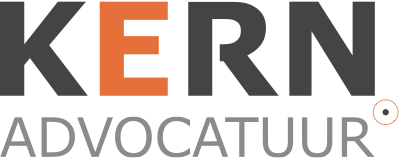Corporate litigation under Dutch law
Disputes amongst shareholders in private limited liability companies (in Dutch: “BV”) or disputes between shareholders and the board of directors of a BV can arise out of numerous events. In practice however it appears that topics such as the dividend policy of the company, the position and the functioning of the board of directors or a single director, the position and the functioning of the general meeting of shareholders in general and the position of minority shareholders in particular, are hot items.
General Meeting of Shareholders
In case a shareholder disagrees with certain decisions of the board, for instance decisions regarding the strategy of the company, or if the shareholder feels sidelined, the shareholder needs to address these issues in the general meeting of shareholders (“GMS”). For tips on how to convene a GMS, please be referred to the article General Meeting of Shareholders for the BV (General Meeting of Shareholders ).
Shareholders Agreement and the Articles of Association
Should a disagreement eventually lead to a dispute and – not unlikely – to a deadlock in the GMS or to the company’s continuity being at stake, other measures should be considered. In order to assess one’s legal position, certain corporate documents such as the articles of association or the bylaws and – if entered into – the shareholders agreement should be thoroughly reviewed as these documents could contain specific stipulations on for instance deadlock situations and obligatory transfer of shares from one shareholder to another.
Enterprise Chamber or Ondernemingskamer
In the event that a dispute cannot be amicably solved, a shareholder could decide to initiate legal proceedings. The enterprise chamber of the Amsterdam Court of Appeal (in Dutch: “Ondernemingskamer”) has been given the exclusive jurisdiction by law to adjudicate on specific corporate disputes. Not only is the enterprise chamber entitled to adjudicate on matters of the works council and other corporate disputes, the most important and from an international perspective most exceptional proceedings, are the so-called inquiry-proceedings or in Dutch “enquêteprocedures”. In these inquiry-proceedings, the enterprise-chamber can take measures that directly intervene in the internal corporate governance structure of a company, such as the temporary suspension of directors, the dismissal of directors and the (temporary) transfer of shares, etc. These measures will be taken in order to repair the internal checks-and-balances and thereby the continuity of the company, but only if the enterprise chamber is of the opinion that there are so-called well founded reasons to doubt proper management.
Dispute settlement or Geschillenregeling
The Dutch Civil Code also provides the possibility for a shareholder to request the District Court to summon the other shareholder(s) to buy the shares of that shareholder or (in mirror image) to summon the other shareholder to sell its shares to the requesting shareholder. These proceedings are referred to as the dispute-settlement or in Dutch as “geschillenregeling”. The aforementioned enterprise chamber has the jurisdiction in the appeal cases of the geschillenregeling. Given the time consuming nature of these proceedings, these proceedings are not that popular and practice shows that parties prefer the inquiry-proceedings as a way to achieve the desired outcome.
Should you have any questions regarding corporate litigation in the Netherlands or any related matter, please contact Peter Keegstra (pkeegstra@kernadvocatuur.nl). Peter Keegstra is partner at KERN Advocatuur and is specialized in corporate litigation and corporate law. Over the years he has conducted several proceedings before the enterprise chamber and the district courts assisting minority and majority shareholders and management.
